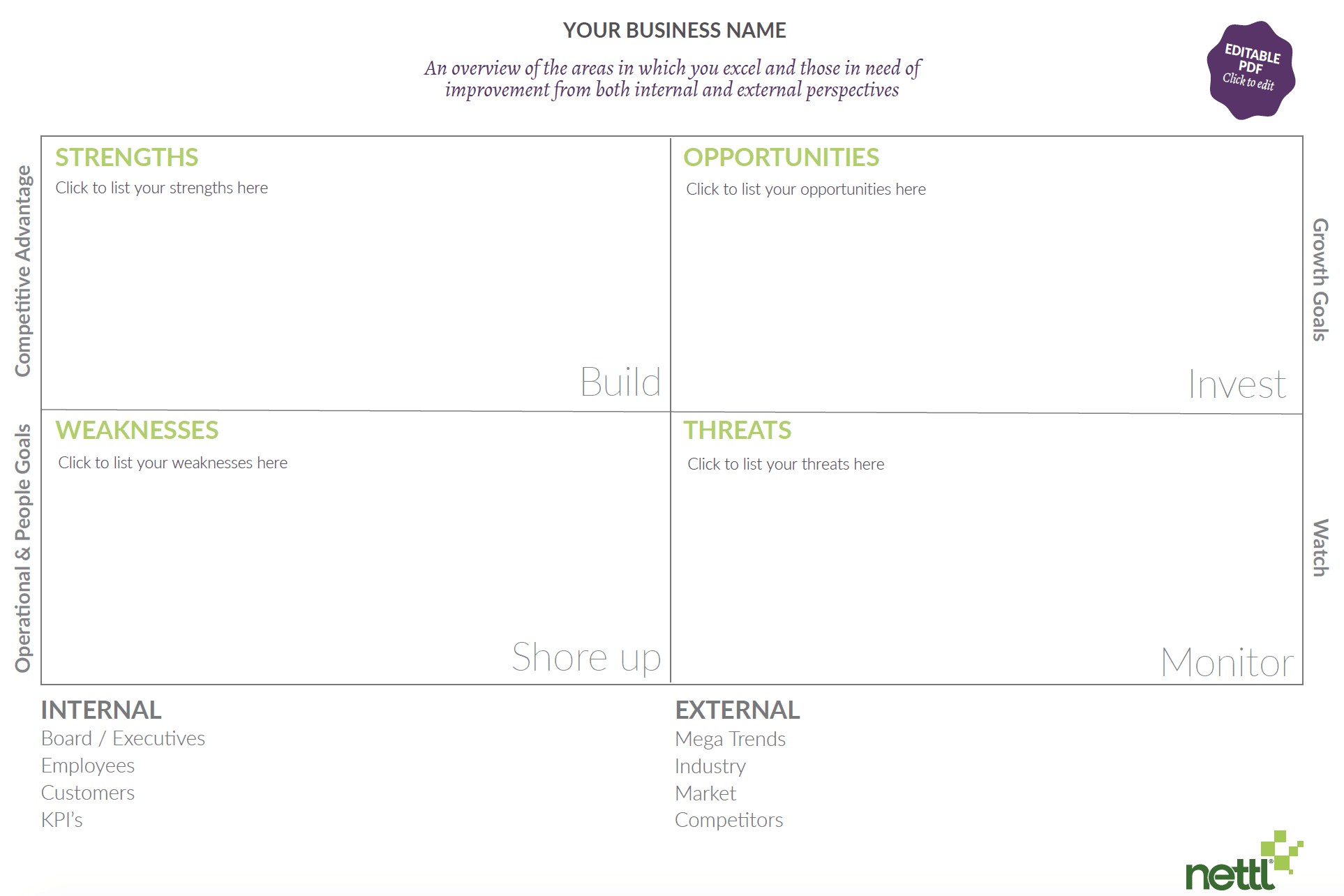Do I need a marketing plan?
approx 7 minute read
A marketing plan is a strategic map designed to structure the way a business organises, executes, and tracks its marketing activities. A marketing plan is an essential guide tailored to the strengths, weaknesses, threats, and opportunities of any given business. Promoting and growing your business are the overall objectives of any good marketing plan, and they can help you understand the impact of your marketing activities from the very beginning of their implementation.
A solid marketing plan requires thought, research, and an in-depth understanding of the marketplace and your target market to ensure the effort put into the strategy produces worthwhile results. As a business owner or marketing manager, you want to make sure your marketing budget is doing the most work possible. Without a strong and comprehensive marketing plan, companies can often end up shooting in the dark, attempting many different tactics without any real structure, and achieving little success.

6 Benefits of Having a Marketing Plan
- Coordinate marketing actions with desired outcomes
When deciding on the goals of your business, one of the most important aspects of a successful plan is clarity. Be as precise and specific with the objectives of the business plan as possible to avoid getting caught up in an irresolute set of goals that don’t each have a chain of planning and actions.
Without an exact target, you can’t know exactly what each planned activity is supposed to achieve. Focus on what the main goals are for the business. Strive to make them as realistic as possible and create a plan that can tangibly achieve these goals.
- Create consistency and accountability
Marketing teams vary in size, capacity, and dynamics. Sometimes a company’s marketing is handled solely by one person, while some companies may not have any employees dedicated to marketing at all. On the other hand, some companies have huge marketing departments – and huge budgets.
Regardless of team size, all marketing efforts work towards the same goals, with all members following the same instructions to achieve one common result. Without a plan, efforts can become disjointed and ineffective. Use a plan to divide the efforts of a larger marketing team into impactful subsections, such as social media, print, and email marketing.
- Cost efficiency
All businesses have a set marketing budget, and if they don’t, they absolutely should. Create a plan to allow your business to prioritise what brings in the best results and focus on activities that can’t be neglected. This allows for new or riskier ideas to be factored into the plan.
Plan and budget accordingly to clearly see the results of your inputs and measure success against cost. Use previous marketing plans to create new ones; comparison is key. Consider what works, what reliably attracts income, and what might be worth adding to the marketing mix. Without a plan, effective budgeting is impossible, and money may be spent on dead ends.
- Contribute to a motivated and proactive team
Coordinate a plan to encourage proactivity and continuous creative thinking. Without a plan, efforts often become reactive to problems as they arise, rather than focusing on active improvements and suggestions.
Plans also create urgency. Set deadlines and expectations for yourself and your team, such as generating five new ideas every week. Once a solid plan is in place, less time is spent brainstorming and more time is spent implementing a carefully curated strategy.
- Allow results to be measured against actions
Most businesses have multiple objectives, some of which may not necessarily be connected. Ambiguity around approaches can arise without a clear guide crafted from precedence.
A plan serves as a benchmark or target. It allows a team to compare the results of campaigns against the effort, time, and budget invested in each activity. This information is invaluable and becomes increasingly helpful over time as plans are executed and analysed. Monitor your marketing plan against the goals established at the outset, ensuring it remains aligned with those objectives.
- Make a better business for your existing customers
Marketing isn’t always about customer acquisition and profit. A strong marketing plan can also provide valuable insights into nurturing current client relationships.
Understand what your target market demands from your marketing activities. Remember, you cannot fix what you don’t understand. Include customer communication in your marketing efforts to cross-sell and upsell to existing clients. Building trust and loyalty is crucial for maintaining a great brand image.
So now I know what a Marketing Plan is, but do I need one?
The answer is yes. Regardless of the size or nature of your business, you will need some form of marketing plan, no matter how small. Planning your marketing activities not only increases their effectiveness but also helps you delegate to employees and manage budgets.
The primary difference between major corporate marketing strategies and small business marketing lies in budget, capacity, and manpower. Marketing plans evolve as businesses grow, and every company starts somewhere. Understanding your realistic capabilities alongside your expectations is crucial to being smart with your investments.
The internet and social media have enabled smaller businesses to compete in the marketing space. Budget constraints are no longer a barrier to setting achievable and sustainable goals. Depending on your capacity and in-house capabilities, marketing activities can be outsourced or managed by a small team or individual.

How to Carry Out a Successful Marketing Plan
- Curate all the necessary research
Conduct research on your target market and ensure you fully understand the marketplace to make your plan as impactful as possible. - Conduct a SWOT analysis
Analyse your business with its strengths, weaknesses, opportunities, and threats in mind. Treat this as your marketing audit, understanding where you are now, where you want to be, and what steps are required to get there. Use Nettl’s free PDF to create your SWOT analysis!
- Clearly establish a list of goals
Your research should clarify what you want to achieve. Be realistic, as some goals may involve smaller objectives within a larger framework.
Set a tangible timeframe for achieving these goals. Divide objectives into short-term tasks and long-term plans to maintain focus. - Consider a budget that aligns with expectations
Decide on the monetary input required to achieve your goals. Factor in extra costs to avoid overextending your budget, ensuring resources are prioritised effectively. - Create an executive business summary
Write the executive summary last to capture all the actions taken in creating the marketing plan. Place this summary at the beginning to provide an overview of the roadmap.

Nettl Studios offers free consultations on marketing services to help you determine the best marketing mix for your business. Take action now, no matter how small; every marketing plan starts somewhere!



